Stories
Fighting for Charlie
How could doctors ignore my dying son?
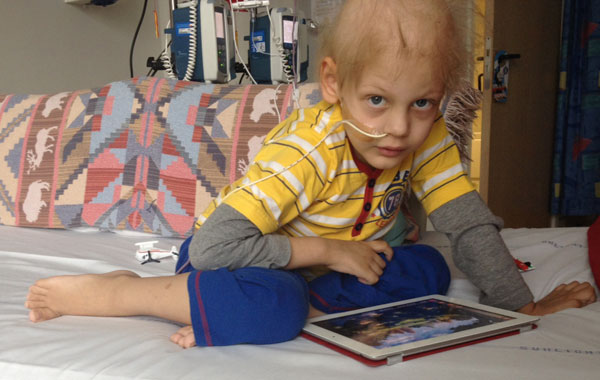
Smiling, I watched my four-year-old son Charlie kneel down in the kitchen, surrounded by bits of toy car. He'd taken the whole thing to pieces and was now trying to put it back together.
You'd have thought he was head mechanic for a Formula One team!
‘Figured it out yet?'
I grinned, ruffling his floppy, brown hair. ‘Not yet, Mum,' he frowned, deep in concentration.
He was such a brainbox I called him my ‘little professor.'
And sure enough, minutes later, Charlie proudly handed me the car back intact and perfect again.
‘Well done, you!'
I grinned. But Charlie's laser-like focus wasn't just because he was smart. Me and his dad Paul, 45, had split up when he was six months old but we stayed friends, and by the time our boy was a toddler, we knew he was ‘different.'
At playgroups, other kids ran around playing, while Charlie just lay on the floor staring at the spinning wheels of toy cars.
‘He barely makes eye contact with anyone,' I'd fretted to Paul.
‘I know,' he'd admitted. ‘It's like he's in his own little world.' Charlie hated loud noises and new places, and would rather sit for hours reciting numbers.
When he was three, a health visitor referred him to a paediatrician.
‘I'm afraid Charlie has a form of autism called Asperger syndrome,' he admitted.
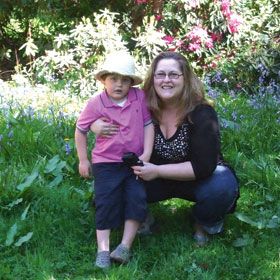 ‘He finds it difficult to relate to other people, and he can't pick up the social signs that show what others may be feeling.'
‘He finds it difficult to relate to other people, and he can't pick up the social signs that show what others may be feeling.'However, like many Aspergers sufferers, Charlie was very intelligent.
‘We'll do whatever it takes to make sure he has a normal life,' I'd vowed to Paul.
By the time Charlie was five, I'd fought to get him into a mainstream primary school and, despite all the odds, he'd settled in well. But just five months later, he woke me up in the middle of the night, clutching his stomach.
‘I've got a belly ache, Mummy,' he'd whispered.
He was off his food, too.
For the next few weeks, Charlie seemed to have a sore tummy every day, and his skin grew pale.
‘It's probably just constipation,' the doctor said. ‘Many children with autism have weaknesses of the gut, too.'
In those next months, I took Charlie back and forth to the GP, out-of-hours doctors, and even A&E as he developed a pot belly and started to lose weight.
‘Can't you give him a blood test or scan?' I'd pleaded over and over. But, because of his autism, Charlie was terrified of strange places and hit out when nurses tried to take his blood.
‘It's too dangerous to examine him like this,' a doctor said, giving him laxatives instead, and sending us home. But Charlie was so ill now, he rarely had the energy to leave the sofa.
Usually, his blue eyes sparkled. Now, they seemed dull and lifeless. Most evenings, he begged me to put on his favourite Pink Floyd album while he was on his iPad.
‘Do you want your music on?' I asked him now. He shook his head slowly. That was when I knew something was going on inside my son.
We'd visited doctors and the hospital 11 times in the last five months and one day, as I cradled a weakening Charlie in my arms at A&E, I finally snapped.
‘My boy is seriously ill,'
I raged to a nurse, ignoring the shocked stares. ‘I'm not going anywhere until you agree to give him a scan!'
Suddenly, all the hardship Charlie had already suffered rushed back to haunt me.
One time, I'd taken him to the local park and felt relieved as he sat next to some boys the same age on a bench. He'd been chatting away to them quite happy but when I went to make sure he was okay, I caught one of the lads smirking.
‘You're stupid you are,' he spat at Charlie. ‘What's wrong with you?'
Poor Charlie had thought he'd made some new little friends, but they'd simply been laughing at him.
Why couldn't they see the smart, funny, loving boy his family could?
It seemed that even grown adults, professionals even, were happy to dismiss my boy as stupid.
No, they wouldn't do it anymore, I vowed.
The wild look in my eyes told the hospital staff I would stand there all weekend if I had to.
They agreed to do a CT scan, and while he was doing it, the sonographer's face paled.
‘Is this child an inpatient?' he'd asked the nurse, solemnly. ‘Because if not, he needs to be admitted, fast.'
It was three weeks later, after biopsies and scans, and Charlie being referred to a new hospital - the Royal Manchester Children's Hospital - that we finally heard the terrible truth.
‘Charlie has neuroblastoma' the consultant admitted. ‘It's an aggressive children's cancer.'
I shed no tears. I'd known something was badly wrong with my boy. Broken, I went into survival mode. ‘The tumour in his tummy is the size of a basketball,' the consultant continued.
‘It's so big, I can't even see his lungs or liver on the scan.'
‘But he'll be okay, won't he?' I stammered. ‘A grade two or three tumour has a survival rate of 80 to 95 per cent,' he explained.
I breathed a sigh of relief. Thank god. The odds were on Charlie's side.
‘But,' he continued, ‘Charlie has a stage four tumour - and I'm afraid the survival rate is less than 40 per cent.'
Blind rage seeped through me. As I'd been fighting for someone to take me seriously, cancer was ravaging my little boy.
Paul was distraught, too, but we had to put aside our pain for Charlie. He fought against the doctors as they tried to put tubes in his nose and chest, needles in his body.
‘Tell me the name of Thomas the Tank Engine's best friends,' I blurted, desperate to distract him. It was his absolute favourite show on TV. ‘There's Percy, Gordon, Henry...' he replied, true to form, reciting every last one.
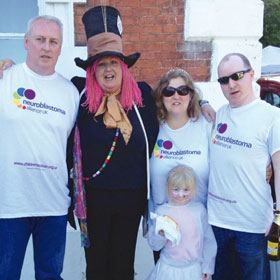 Three weeks into his chemotherapy, though, Charlie's hair started falling out.
Three weeks into his chemotherapy, though, Charlie's hair started falling out.‘I look so strange, Mummy,' he said, quietly, staring in the mirror. ‘Don't worry darling,
I had a tumour as a little girl, too,' I lied. ‘But, my hair grew back, and so will yours.'
Fours months on, Charlie's finished his first bout of chemo, but he still faces an op to remove the tumour and collect stem cells, as well as more rounds of gruelling chemo and radiotherapy. With the help of Neuroblastoma Alliance UK, we've started the Go Team Charlie Appeal to raise funds for him to have treatment in America.
In the UK, the procedure has a 46 per cent problem-free survival rate. In America, it's 66 per cent, but it costs a total of £250,000.
The Royal Manchester Children's Hospital have cared for my son brilliantly, but I'm still angry with the previous medics I went to.
If they hadn't fobbed us off for so long and Charlie'd been diagnosed earlier, maybe he'd have much better odds today.
But in my heart, I know my smart, funny little boy will make it. I will never lose hope.
Sharon Woolley, 37, Lytham St Annes, Lancashire
Story search...
Story archive
Just added...
From chunky to hunky
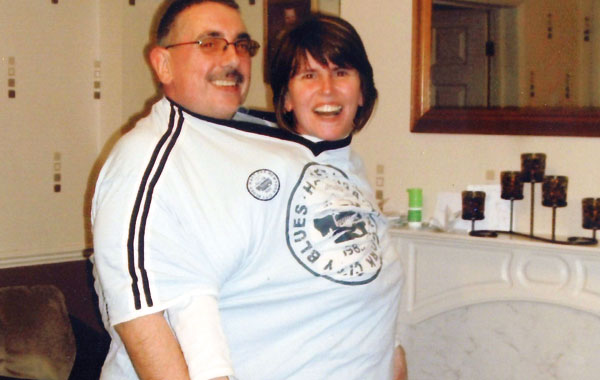
Cuddly Colin was too roly-poly to...
read more...
The boy of steel
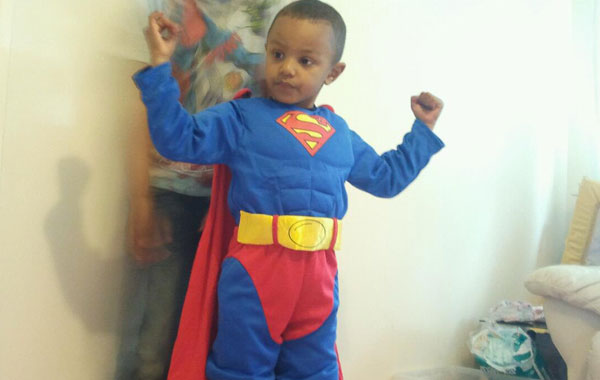
With his baby sister Holly to love,...
read more...
The great Moggy mystery
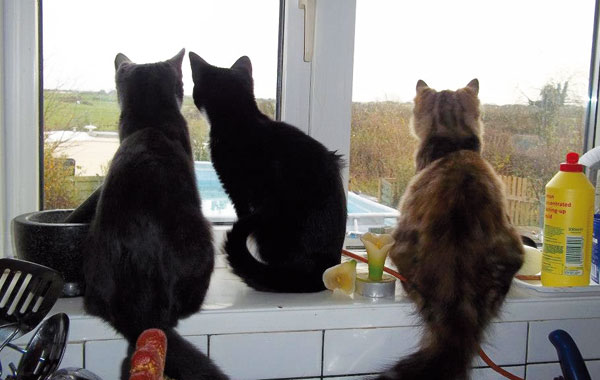
Just what was making all of our cats...
read more...
Most popular...
Quick reads...
No choccie, but life's so sweet!
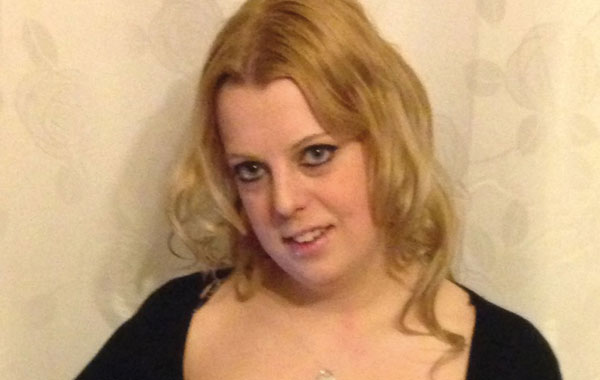
I'm a reformed chocoholic...
read more...
Baa-ck from the dead!
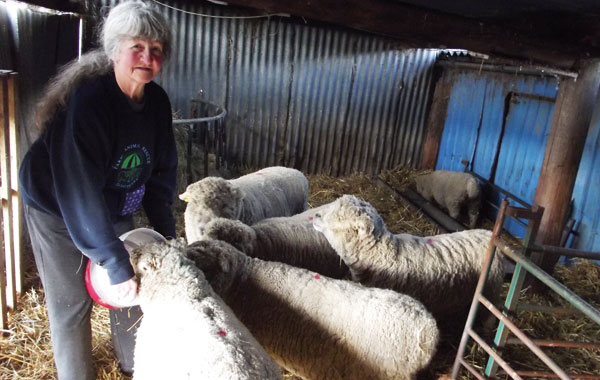
My heart bleated for these poor sheep...
read more...
Brave undertaking
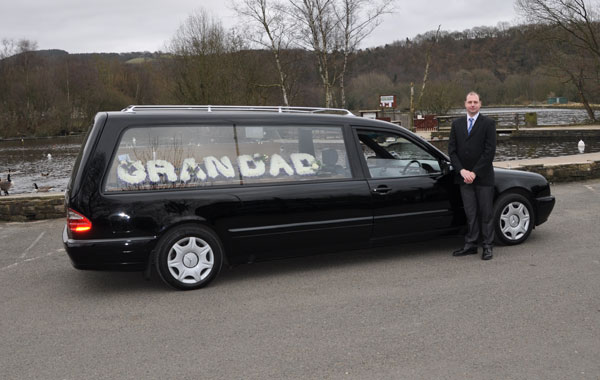
I've swapped cars for coffins...
read more...























